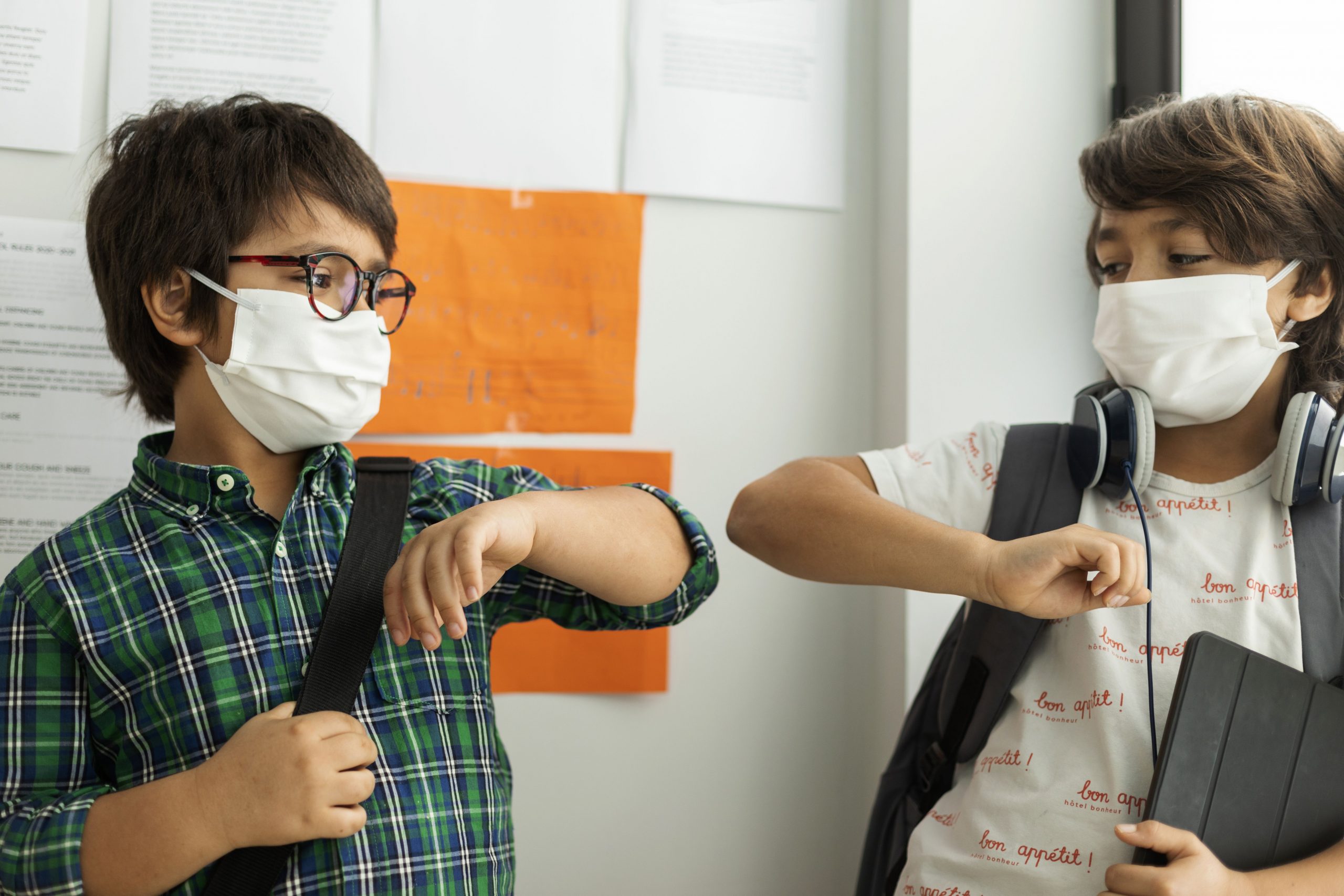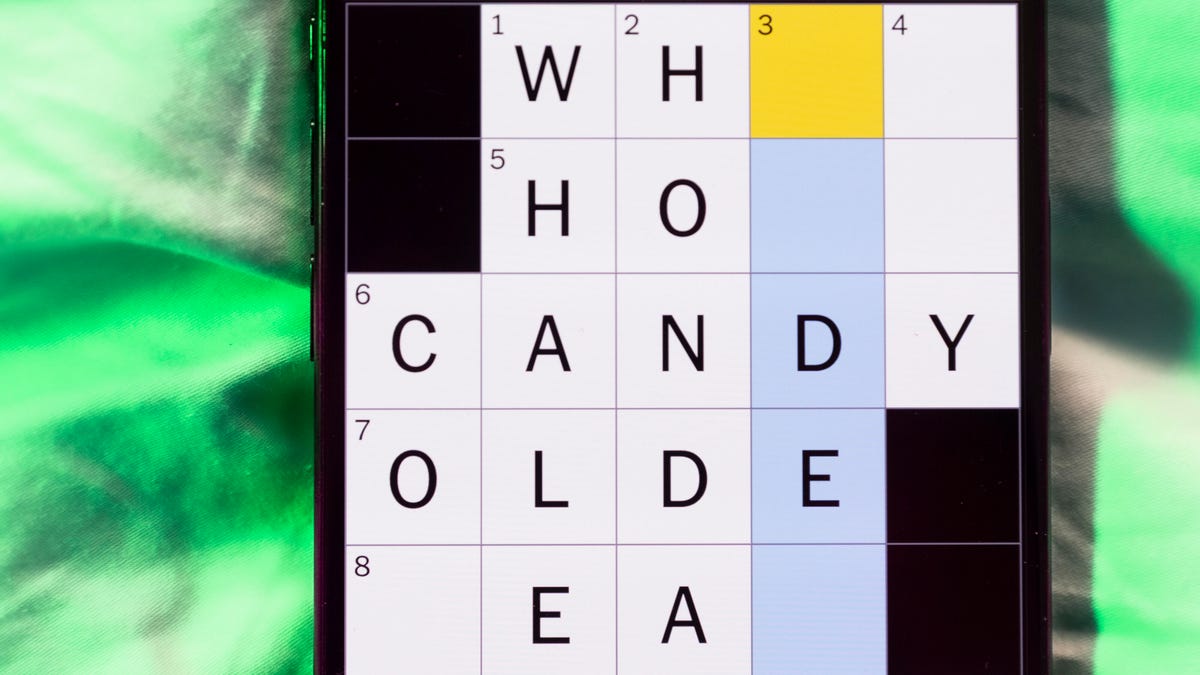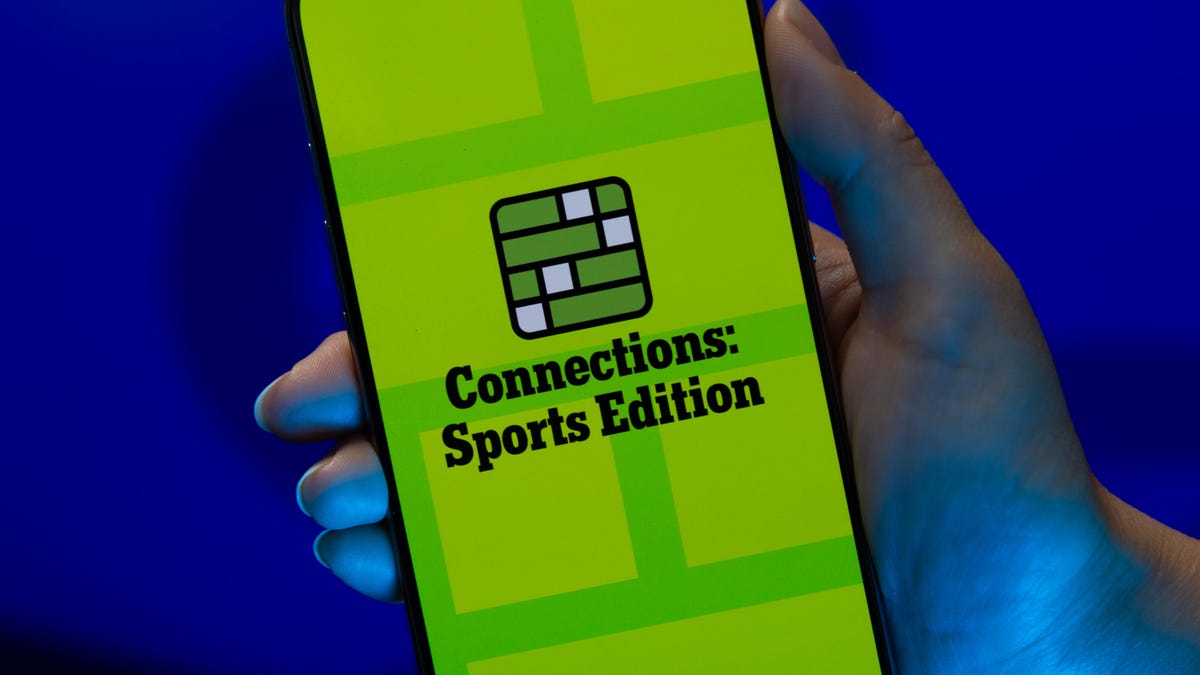Technologies
FDA committee endorses COVID vaccine for kids ages 5-11: Here’s the latest
If authorized and recommended, shots could be given out to young kids as early as next week. Here’s what to know before your child becomes eligible.

A panel of independent advisers to the US Food and Drug Administration voted Tuesday to recommended Pfizer’s COVID-19 vaccine to kids ages 5 to 11. The FDA still needs to give the vaccine official authorization, and another independent committee to the US Centers for Disease Control and Prevention will issue guidance next week on how shots roll out, but the vaccine could be available to younger kids soon after that.
Last week, the White House shared a plan to get kids under 12 vaccinated against the coronavirus, saying it «will be ready to begin getting shots in arms in the days following a final CDC recommendation.» In addition to Pfizer’s vaccine being a lower dose for kids ages 5 to 11 (one-third the dose given to everyone else), we may expect the COVID-19 campaign to look different for those in that age group.
Children remain at low risk of severe COVID-19 disease and death compared with the adult population (of states that reported data to the American Academy of Pediatrics, 0.1% to 2% of COVID-19 cases in children resulted in hospitalization). But children can experience complications from COVID-19, including long COVID. According to a poll by the Kaiser Family Foundation, about one-third of parents said they would vaccinate their child age 5 to 11 «right away» after they become eligible for a COVID-19 vaccine.
Although kids age 11 or younger can’t be vaccinated quite yet, teens ages 12 and up can be. While we wait for final recommendations for younger kids, here’s what we know about COVID-19 vaccines for kids.
When will kids be able to get a COVID-19 vaccine?
Kids ages 12 and up are able to get Pfizer’s COVID-19 vaccine. The other mRNA vaccine, Moderna, and the only single-dose vaccine on the US market, Johnson & Johnson, aren’t available for kids yet.
The FDA’s advisory committee met Tuesday and voted on recommending Pfizer’s COVID-19 vaccine for kids ages 5 to 11. Pfizer said in September that its vaccine is safe and effective for children in that age group, and members of the FDA’s committee ultimately voted that the benefits of vaccinating younger kids outweighed the risks. If an authorization is formally accepted by the FDA, an independent advisory committee to the US Centers for Disease Control and Prevention will meet Nov. 2-3 to decide how the shots will be administered to children, and the CDC will need to formally accept its recommendation. Both agencies typically follow the advice of their advisory committees, so we can expect a final decision for kids ages 5 to 11 next week.
Do I need to give consent in order for my young child to get vaccinated?
Yes, parents generally need to consent to their children receiving medical care, which will include Pfizer’s COVID-19 vaccine. This is especially true for younger children.
However, if you have a teenager or child old enough to express a desire to get a COVID-19 vaccine, but their desire is different than yours, they may have legal precedent to seek one out, depending on which state you live in.
In Tennessee, the rights of minors versus their parents when it comes to vaccine decisions came under the spotlight last summer when the state’s vaccine director, Michelle Fiscus, was allegedly fired, in part, for sending out a memo explaining Tennessee’s «mature minor doctrine,» which is the state’s writing on how minors may seek medical care without the consent of their parents in some cases.
If my child is immunocompromised or has a health condition, can they get a booster?
If your child is at least 12 years old, «moderately or severely» immunocompromised and vaccinated with Pfizer, according to the CDC, they should get a third dose of Pfizer. Moderna is only authorized for people aged 18 and older. Examples of people who are immunocompromised include people receiving treatment for cancers in the blood or tumors, organ transplant recipients, stem cell transplant recipients, people with untreated or advanced HIV infection and people taking drugs that could suppress the immune response, per the CDC.
The boosters currently available to some Americans who received Moderna, Pfizer or Johnson & Johnson only applies to adults age 18 or older. No minor is eligible for a booster.
Does Pfizer’s full FDA approval extend to kids?
The FDA’s approval of the vaccine by Pfizer and its partner, BioNTech, only applies to people as young as 16 years old. While Pfizer remains the only vaccine authorized for use in kids as young as 12 years old, vaccinating that age group is still under emergency use authorization rather than total approval. This is because, along with other factors, full FDA approval requires data on how the vaccine fares six months out, per NPR. Pfizer’s vaccine was only authorized for kids aged 12 to 15 in May.
This means that a vaccine mandate that hinges on full approval of a coronavirus vaccine, such as the one announced for schoolkids in California, won’t apply to kids younger than 16 for a while.
My child has allergies. Can they get the vaccine?
«If the child has a history of anaphylaxis or other severe allergies, then the observation time after the injection may be 30 minutes instead of 15,» Dr. Anne Liu, an infectious disease specialist with Stanford Hospital and Clinics and the Lucile Packard Children’s Hospital, said in August. So you might be asked to stick around the waiting room with your child for an extra 15 minutes so health care providers can monitor vaccine recipients for the (extremely rare) allergic reaction that can occur after any vaccination.
Additionally, Liu said, children who are prescribed an EpiPen for any reason should bring it to their vaccine appointment.
If your child has a severe allergy to any of the ingredients in the vaccine available to them, they shouldn’t take it, according to the World Health Organization. Adults allergic to any ingredient a COVID-19 also shouldn’t take that vaccine. Find the ingredients for Pfizer on the FDA fact sheet, as well as Moderna’s components.
Can my child get the COVID-19 shot at the same time as other vaccines?
Yes, according to the CDC, your child may get other vaccines when they go in for their coronavirus shot without waiting 14 days between appointments.
Should I worry about myocarditis?
Myocarditis and pericarditis, or inflammation in the heart, is a rare side effect linked to Moderna and Pfizer vaccines, mostly in adolescent males and young adults. After looking at data and weighing the risks and benefits, the CDC still recommends everyone, including children as young as 12, get vaccinated. According to a Washington Post report, the CDC and FDA are looking into Canadian data that suggests Moderna might carry a higher risk of myocarditis than Pfizer, mainly in young people.
When cases of myocarditis have occurred, Liu said, the cases have typically responded to treatment and resolved themselves, even when patients were hospitalized for a day or two.
«COVID-19 infection can have much more serious consequences for the heart than the vaccine,» Liu said.
The government in Singapore, where 82% of the population is fully vaccinated, recommends that people, especially adolescents and young men, refrain from strenuous exercise for a week after their second dose of a COVID-19 vaccine. The CDC recommends speaking to a doctor about when to return to sports or exercise following a diagnosis of myocarditis.
If I’m pregnant or breastfeeding, can I get vaccinated?
Yes, according to the CDC, because pregnant people are at much higher risk of severe COVID-19 and complications, including death, than people who aren’t pregnant.
Preliminary data shared by the CDC showed there was no increased risk of miscarriage among those who got an mRNA vaccine before the 20th week of pregnancy compared with those who didn’t.
My child can’t be vaccinated yet. What should we do?
When spending time with other families with children, it’s best if everyone continues to wear a mask, according to Harvard Health, and they should isolate themselves if there’s a COVID-19 exposure. Additionally, choosing more outdoor activities and avoiding crowds, even when outdoors, can help protect your kids. Parents and older siblings who are vaccinated should also mask up to prevent breakthrough infections that can spread to vulnerable people who aren’t as protected, including kids.
The CDC has prioritized in-person learning for students this fall, and it has guidance on prevention strategies schools should use to keep students and staff safe.
Correction, Oct. 25: A previous version of this story included a sentence implying incorrect information about available vaccines for children age 12 and older. Only Pfizer’s vaccine is currently available to kids ages 12 to 17.
The information contained in this article is for educational and informational purposes only and is not intended as health or medical advice. Always consult a physician or other qualified health provider regarding any questions you may have about a medical condition or health objectives.
Technologies
Verum Messenger Turns Five and Launches Offline Messaging on iPhone
Verum Messenger Turns Five and Launches Offline Messaging on iPhone

Verum Messenger has marked its fifth anniversary with the release of a new feature that enables users to exchange messages without an internet connection.
The update, now available on iPhone, allows devices to communicate directly through a decentralized peer-to-peer architecture, bypassing servers, mobile networks and Wi-Fi. According to the company, messages are transmitted securely without relying on traditional internet infrastructure.
Unlike most offline communication tools that depend on Bluetooth, Verum’s approach uses encrypted device-to-device technology designed to operate independently of centralized systems.
Founded five years ago, Verum Messenger is positioned as a privacy-first platform. The app does not require a phone number or email address for registration and generates encryption keys locally on the user’s device. The company states that user data and message content are not stored on centralized servers.
Over time, Verum has expanded beyond messaging to include features such as encrypted calls, screenshot and screen-recording protection, self-destructing messages, anonymous email, a built-in VPN, eSIM connectivity and on-device AI tools.
The offline messaging update reflects a broader push toward more resilient communication tools, particularly as concerns over network reliability, censorship and digital surveillance continue to grow.
Technologies
Today’s NYT Mini Crossword Answers for Monday, Feb. 2
Here are the answers for The New York Times Mini Crossword for Feb. 2

Looking for the most recent Mini Crossword answer? There are some tough clues today. Click here for today’s Mini Crossword hints, as well as our daily answers and hints for The New York Times Wordle, Strands, Connections and Connections: Sports Edition puzzles.
Need some help with today’s Mini Crossword? Read on. And if you could use some hints and guidance for daily solving, check out our Mini Crossword tips.
If you’re looking for today’s Wordle, Connections, Connections: Sports Edition and Strands answers, you can visit CNET’s NYT puzzle hints page.
Read more: Tips and Tricks for Solving The New York Times Mini Crossword
Let’s get to those Mini Crossword clues and answers.
Mini across clues and answers
1A clue: Rock band with albums like «High Voltage» and «Flick of the Switch»
Answer: ACDC
5A clue: Stuck doing the same old, same old
Answer: INARUT
7A clue: Burning up
Answer: ONFIRE
8A clue: -tion, for one
Answer: SUFFIX
9A clue: Jared of 2025’s «Tron: Ares»
Answer: LETO
Mini down clues and answers
1D clue: Declare void, as a marriage
Answer: ANNUL
2D clue: ___ macchiato (espresso drink)
Answer: CAFFE
3D clue: Begin to veer off the road, say
Answer: DRIFT
4D clue: Odd little trinket
Answer: CURIO
5D clue: What Apple smartphones run on
Answer: IOS
6D clue: ___-Mex cuisine
Answer: TEX
Don’t miss any of our unbiased tech content and lab-based reviews. Add CNET as a preferred Google source.
Technologies
Today’s NYT Connections: Sports Edition Hints and Answers for Feb. 2, #497
Here are hints and the answers for the NYT Connections: Sports Edition puzzle for Feb. 2, No. 497.

Looking for the most recent regular Connections answers? Click here for today’s Connections hints, as well as our daily answers and hints for The New York Times Mini Crossword, Wordle and Strands puzzles.
Today’s Connections: Sports Edition is a tough one. It helps to know a lot about two distinct locations and their sports teams. If you’re struggling with today’s puzzle but still want to solve it, read on for hints and the answers.
Connections: Sports Edition is published by The Athletic, the subscription-based sports journalism site owned by The Times. It doesn’t appear in the NYT Games app, but it does in The Athletic’s own app. Or you can play it for free online.
Read more: NYT Connections: Sports Edition Puzzle Comes Out of Beta
Hints for today’s Connections: Sports Edition groups
Here are four hints for the groupings in today’s Connections: Sports Edition puzzle, ranked from the easiest yellow group to the tough (and sometimes bizarre) purple group.
Yellow group hint: Lone Star State.
Green group hint: Think of the Arch.
Blue group hint: You put cereal in this.
Purple group hint: Not four or six.
Answers for today’s Connections: Sports Edition groups
Yellow group: Texas college teams.
Green group: St. Louis teams.
Blue group: Can be followed by «bowl.»
Purple group: ____ five.
Read more: Wordle Cheat Sheet: Here Are the Most Popular Letters Used in English Words
What are today’s Connections: Sports Edition answers?
The yellow words in today’s Connections
The theme is Texas college teams. The four answers are Aggies, Cougars, Horned Frogs and Longhorns.
The green words in today’s Connections
The theme is St. Louis teams. The four answers are Billikens, Vlues, Cardinals and St. Louis City.
The blue words in today’s Connections
The theme is can be followed by «bowl.» The four answers are pro, senior, shrine and super.
The purple words in today’s Connections
The theme is ____ five. The four answers are fab, fierce, high and starting.
Don’t miss any of our unbiased tech content and lab-based reviews. Add CNET as a preferred Google source.
-

 Technologies3 года ago
Technologies3 года agoTech Companies Need to Be Held Accountable for Security, Experts Say
-

 Technologies3 года ago
Technologies3 года agoBest Handheld Game Console in 2023
-

 Technologies3 года ago
Technologies3 года agoTighten Up Your VR Game With the Best Head Straps for Quest 2
-

 Technologies4 года ago
Technologies4 года agoBlack Friday 2021: The best deals on TVs, headphones, kitchenware, and more
-

 Technologies5 лет ago
Technologies5 лет agoGoogle to require vaccinations as Silicon Valley rethinks return-to-office policies
-

 Technologies5 лет ago
Technologies5 лет agoVerum, Wickr and Threema: next generation secured messengers
-

 Technologies4 года ago
Technologies4 года agoOlivia Harlan Dekker for Verum Messenger
-

 Technologies4 года ago
Technologies4 года agoiPhone 13 event: How to watch Apple’s big announcement tomorrow
